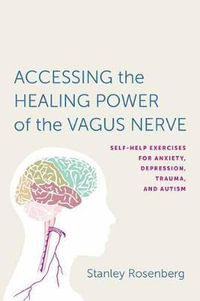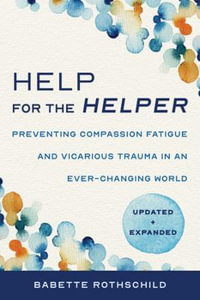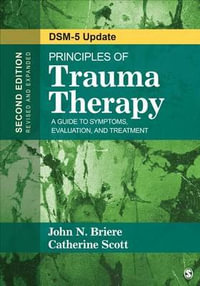This is the first single-authored book to attempt to bridge the gap between aphasia research and the rehabilitation of patients with this language disorder. Studies of the deficits underlying aphasia and the practice of aphasia rehabilitation have often diverged, and the relationship between theory and practice in aphasiology is loose. The goal of this book is to help close this gap by making explicit the relationship between what is to be rehabilitated and how to rehabilitate it.
Early chapters cover the history of aphasia and its therapy from Broca's discoveries to the 1970s, and provide a description of the classic aphasia syndromes. The middle section describes the contribution of cognitive neuropsychology and the treatment models it has inspired. It includes discussion of the relationship between the treatment approach and the functional model upon which it is based. The final chapters deal with aphasia therapy. After providing a sketch of a working theory of aphasia, Basso describes intervention procedures for disorders resulting from damage at the lexical and sentence levels as well as a more general conversation-based intervention for severe aphasics.
Anna Basso has run an aphasia rehabilitation unit for more than thirty years. In this book she draws on her considerable experience to provide researchers, clinicians, and their students and trainees in speech-language pathology and therapy, aphasiology, and neuropsychology with comprehensive coverage of the evolution and state of the art of aphasia research and therapy.
Industry Reviews
"This text heralds a new era in the integration of information on aphasia as we have come to know it. ...Basso's text makes its most striking contribution --narrowing the gap a bit further between aphasia research and the delivery of optimal therapy that enhances the quality of life for our patients." --Applied Neuropsychology
"...this impressive work provides a much needed foundation for integrating clinical and research knowledge. It is a thought-provoking and timely work, especially as our understanding of neural plasticity expands." --JINS
"It has been a pleasure and an honour to review this book . . . It is written in a charming and transparent style. The reader is taken along a long road effortlessly . . . I recommend this book to clinicians, researchers and all those who have an interest in aphasia and its treatment." --Renata Whurr in Brain
"This text heralds a new era in the integration of information on aphasia as we have come to know it. ...Basso's text makes its most striking contribution --narrowing the gap a bit further between aphasia research and the delivery of optimal therapy that enhances the quality of life for our patients." --Applied Neuropsychology
"This is the best account of the relationship between aphasiology and cognitive neuropsychology that I know of. It is also scholarly, up-to-date, quirky, informative and fun to read."--Max Coltheart, DSc, FASSA, FAA, FBA, Professor of Psychology, ARC Federation Fellow, Scientific Director, Macquarie Center for Cognitive Science, Macquarie University, Sydney
"It has been a pleasure and an honour to review this book . . . It is written in a charming and transparent style. The reader is taken along a long road effortlessly . . . I recommend this book to clinicians, researchers and all those who have an interest in aphasia and its treatment." --Renata Whurr in Brain
"The clinical aphasiology world has needed a book such as Dr. Basso's for a very long time. To my knowledge, this book is unique in contemporary aphasiology. Most books on aphasia treatment present a potpourri of viewpoints about how the disorder is to be treated. This book, by one of the world's most experienced clinicians and scholars, is different. Dr. Basso presents a coherent, internally consistent and well argued rationale for what she sets out to
accomplish in the rehabilitation of individuals with aphasia. It is a seamless and principled blend of scientific research and its application to treatment. Not only does an excellent account of aphasia
treatment emerge, but the book's approach can well serve as a role model for other clinician/researchers who wish to influence the practice of clinical aphasiology."--Audrey L. Holland, PhD, Regents Professor of Speech and Hearing Sciences, University of Arizona
"Artfully conceived, gracefully written, charmingly idiosyncratic, exceptionally informative, brilliantly synthetic, this book masterfully bridges the gap between aphasia research and aphasia therapy."--Martin L. Albert, MD, PhD,Professor of Neurology, Director, Harold Goodglass Aphasia Research Center, Boston University School of Medicine
"Aphasia following a stroke or trauma is a devastating and not infrequent condition which can leave the patient grossly handicapped for the rest of their life. Effective rehabilitation is therefore of great practical importance, but both the methods and their efficacy are highly controversial. Anna Basso has long been one of the worlds leading experts. In this definitive work she has presented a theoretically sophisticated, empirically thorough, attractively
written and wise overview of the area. It is essential reading for all students and practitioners in the field."--Tim Shallice, PhD, FRS, Professor of Psychology, Director of the Institute of
Cognitive Neuroscience, University College London
























